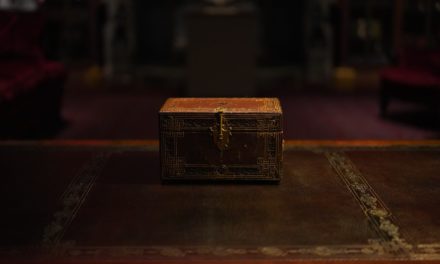Genesis 45:1–15: God Sent Me, Not You
Introduction
Judah has laid all his cards on the table. The silver cup has been found with Benjamin, and the brothers have no hope of demonstrating their innocence to a man who can practice divination. Judah speaks for all the brothers, then, when he implores the Egyptian ruler for mercy. Judah, however, offers himself alone as a substitute, so that Benjamin may be reconciled with their father, Jacob. What Judah does not know, however, is that he is pleading with the same brother whom he suggested selling into slavery over two decades earlier. How will Joseph respond to Judah’s request. Has he been able to forgive his brothers, or is he still holding a grudge? Will he have mercy on Benjamin, or will he make his brothers pay for what they have done to him? Ultimately, Joseph’s ability to forgive his brothers arises from a profound theological reflection that Joseph explains in this passage: in the midst of evil, God accomplishes good.
Discussion Questions
1) Why does Joseph’s self-disclosure to his brothers pose such a crisis to them? What is at stake for them? How would they expect Joseph to respond after what they had done to him so many years ago? Can you think of a time that you were confronted for a sin that you believed to be behind you? How did you feel? How were you tempted to respond? What wisdom does God give us in the Bible about how we should respond when we are confronted with our sin?
2) How has Joseph made peace with the evil that has happened to him over the course of his life? How does he differentiate what his brothers did to him from God’s hand in the course of events during his life? In this, does Joseph minimize the sin of his brothers? Does Joseph charge God with sin? How does Joseph balance the responsibility of his brothers for their sin, with the providential sovereignty of God over all his creatures, and all their actions?
3) Why does Joseph insist that his father and all of Israel’s household should come to settle near him in Goshen? How much more of the famine remains at this point in time? How does the land of Goshen echo the garden of Eden, and how does it foreshadow the future function of the promised land of Canaan? How also will this move of the nation of Israel down to Egypt set up the conflict in the book of Exodus? How do we see God’s hand of providence in this move?
4) How does this story foreshadow the resurrection appearances of Jesus Christ? Consider Christ’s declaration that he has gained all authority (Matt. 28:18). How does this compare with the message that Joseph sends his brothers to proclaim to their father (cf. Gen. 45:13). Consider Peter’s balancing of God’s sovereignty and human responsibility in Christ’s crucifixion (Acts 2:23). How does this compare with Joseph’s understanding of what has happened to him?




